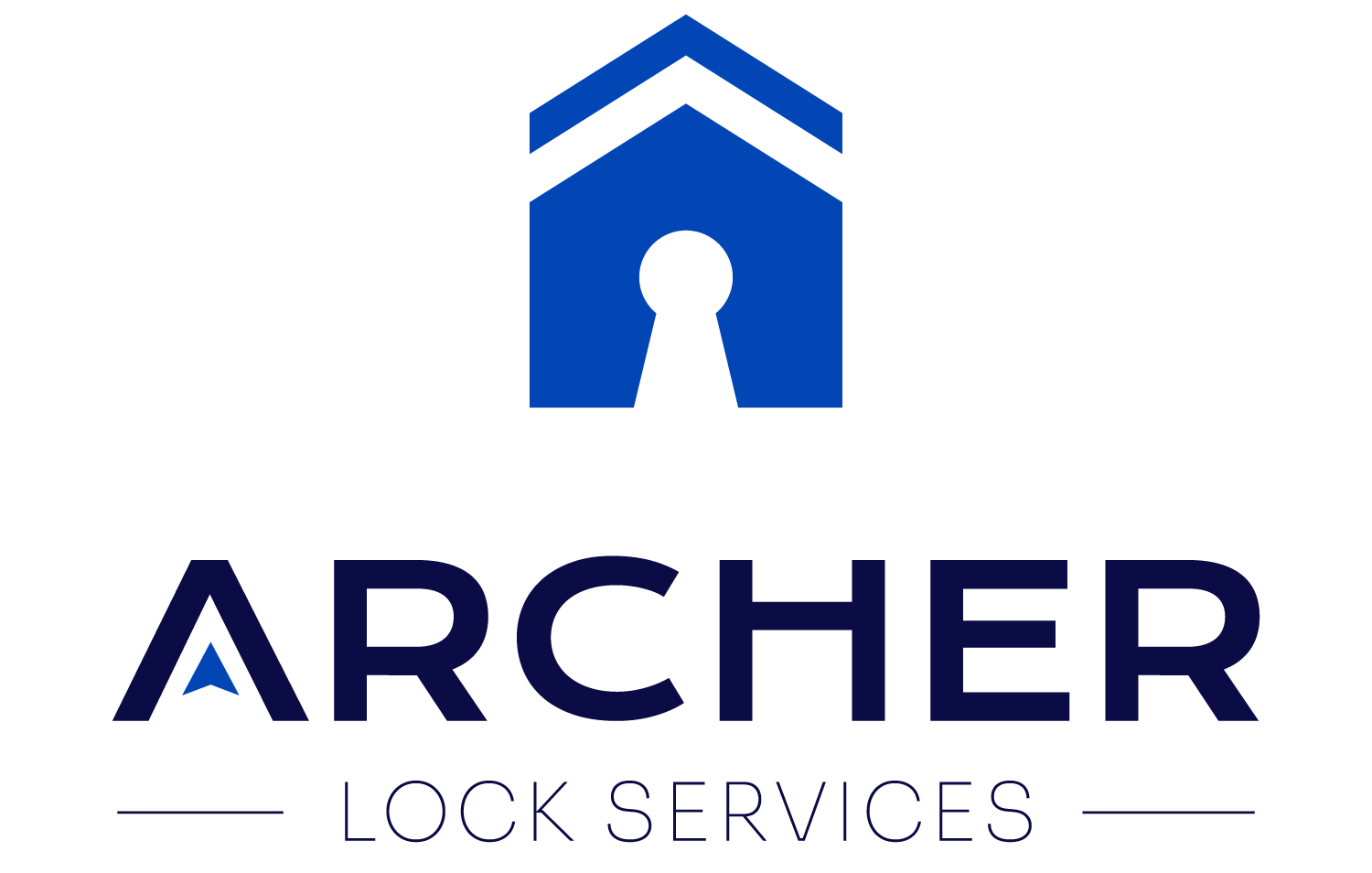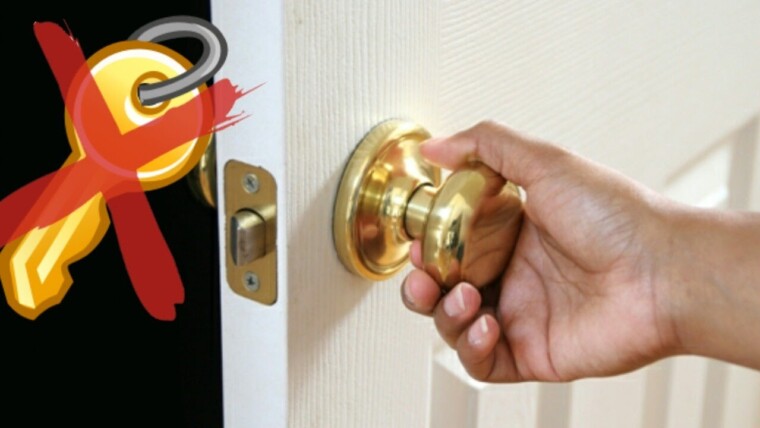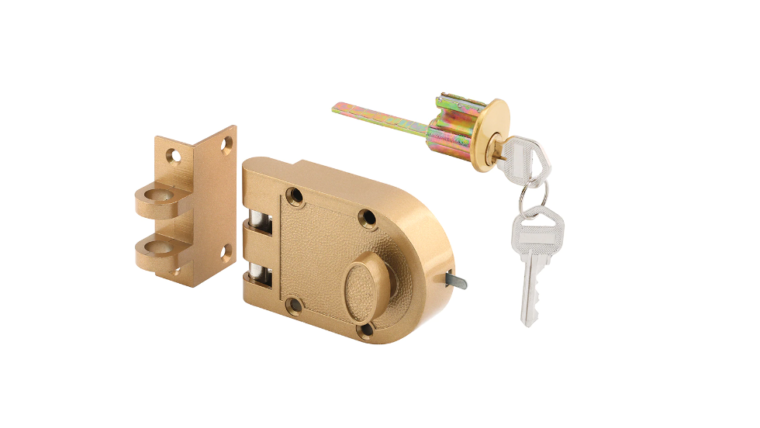3 Tips on Choosing the Right Padlock
Padlocks come in all shapes and sizes. They are probably the unsung heroes of the security industry. Deadbolts and levers/knobs are used on doors so they get used periodically or all the time. On the other hand, padlocks are often used once and may go untouched for months if not years. So to avoid a troublesome situation down the road, here are 3 tips on choosing the right padlock for the job.
Tip #1: Consider if your padlock will be exposed to the elements
If you are planning to leave your padlock exposed to the weather, you will need a different type of padlock versus if it will be sheltered inside all the time.
Most padlock brands carry a product line dedicated to enduring a wide range of temperature differences, rain/moisture, and corrosive elements like salt or chlorine. These additional protections include features like:
- The rubberized casing around the padlock
- Dust or water covers in front of the keyhole
- O-rings or gaskets inside the lock body to prevent water intrusion
- Anti-corrosion coatings or Corrosion resistant alloys
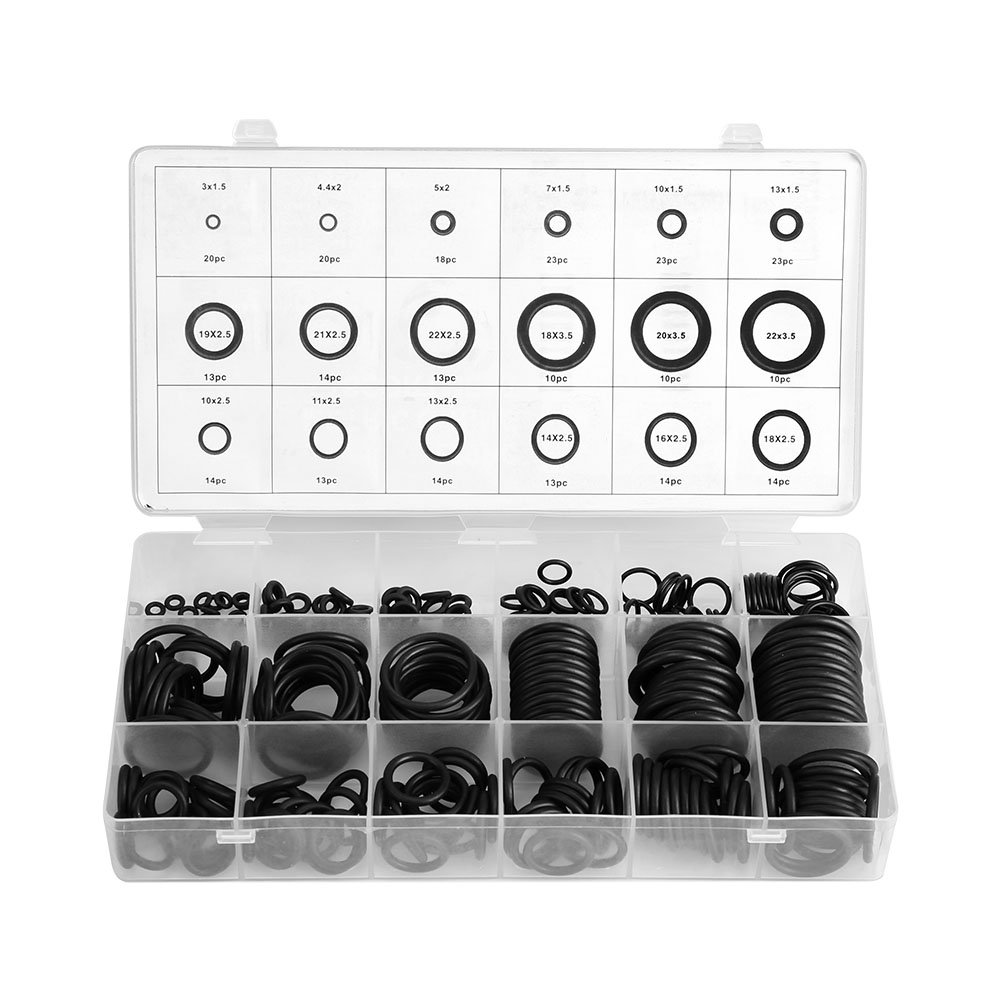
The most popular mid-price option in Vancouver in the weather-protected category would probably be the Abus Extreme padlocks. They are recognizable by their black rubberized cases with silver lettering. If you are not sure, they will have the letters “WP” in the model name to denote “Weather Protection”.
A lot of our commercial clients prefer this padlock as it also has Nano Protection – an anti-corrosive coating on the shackle, it is rekeyable, and generally endures the Vancouver climate well. In addition, it’s fairly reasonably priced.
If you are looking for the best weather-protected padlock you can buy, it would be Abloy’s Super Weather Protection series of padlocks. These high-security padlocks have internal gaskets that prevent water intrusion, corrosion-resistant coatings and alloys, gasket-sealed key covers, etc. Plus, the disc retainer key system is not heavily affected by water or dust as it eliminates the need for springs.
The Abloy SWP series is the preferred padlock for the Canadian Coast Guard as well as many marine shipping companies. The company likes to boast that they have retrieved sea containers with their padlocks that have been lost overboard, and the padlocks work fine without minimal corrosion damage.
The downside of the Abloy padlocks is that they are relatively quite expensive. However, if you are a globetrotter and need a lock that will survive the extreme cold of the Arctic to the extreme heat of the Sahara desert, you will want one or two of these on your Pelican travel case.
If the Abus or the Abloy is out of your price range or a bit too overkill, select a decent all-brass padlock. Brass is the preferred alloy of choice in the Marine industry as it is non-magnetic and has excellent corrosion resistance.
Stay away from the lightweight aluminum padlocks. They are marketed as having strong corrosion resistance, and that is true. However, they do not offer much in terms of security.
Tip #2: Consider the basic layer of security first
Before buying the best padlock you can afford, I recommend you first analyze the container, hasp, or whatever the padlocks will fit into first (i.e. the base layer of security). Too often my clients buy a heavy duty padlock then use it with a very flimsy hasp or eyelet.
Just like with deadbolts and doors, if the door is flimsy, the best deadbolt in the world is still just a decoration. You need a solid door as the foundation that layers of security hardware can be added to.
Similarly, you need to make sure the enclosure you are using with the padlock is solid as well. Most of the time, the weakness lies with the hasp or chain used. Here’s are some recommendations on upgrading the foundational layer of security:
- Make sure your hasp has concealed screws that penetrate as deeply as possible into the surface material
- Use steel pop rivets when possible versus aluminum pop rivets
- For larger hasps, use carriage bolts that go through the entire door
- Use a security chain with a kevlar/nylon sheath
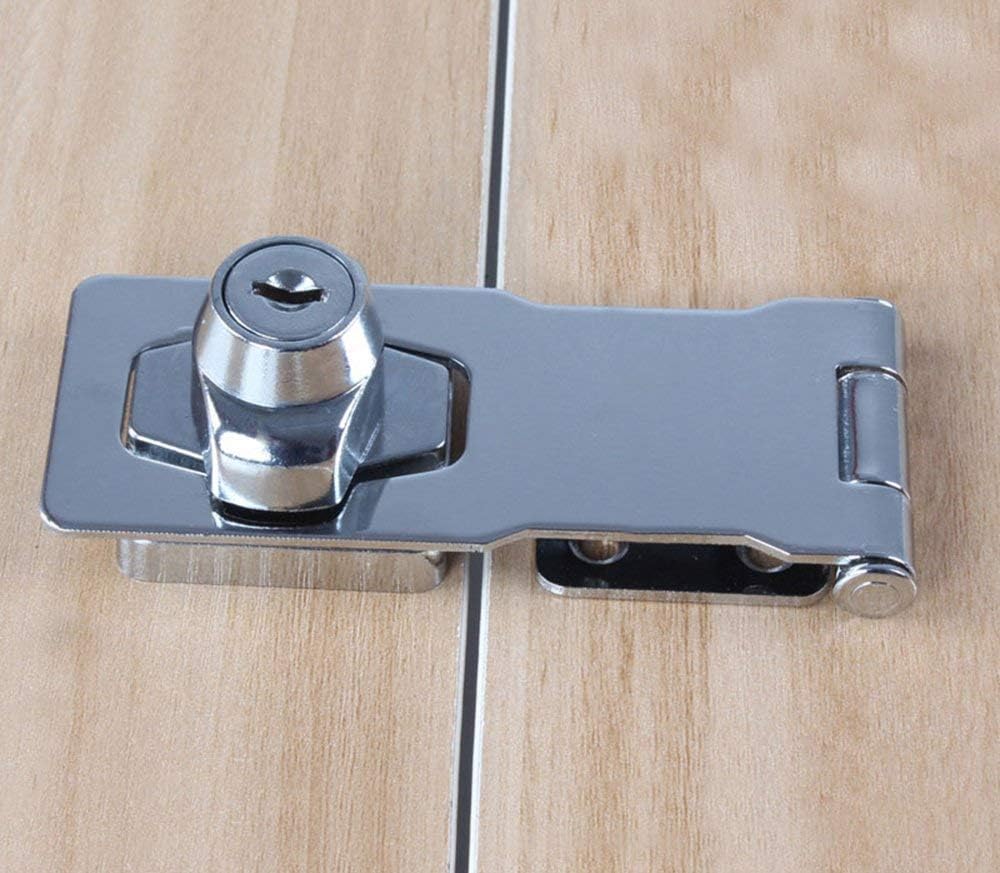
When it comes to chains, we recommend using security chains that place more emphasis on its Rockwell hardness rating versus the standard chain from Home Depot and etc. The chains you find at your standard DIY stores focus more on tensile strength which is how much weight they can pull before they break.
On the other hand, Rockwell hardness is a measure of how hard a material is. Technically, a chain with a hardness rating of 75 cannot be cut with a bolt cutter with a rating of 70. So a security chain offers better cut protection but should not be used to tow anything.
It is important that security chains be covered with a kevlar or nylon sheath. The sheath provides not only additional cut and weather protection, it also prevents scratches and damage to whatever the chain is on. Due to its high hardness rating, it will scratch up anything with a lower rating.
You may remember from high school science that hard materials tend to be brittle while soft materials tend to be more malleable. This brings us to the downside of security chains. While mixed with other metals to form a more practical alloy, security chains can exhibit its brittleness under extreme cold. This is not a problem in Vancouver, but if you are living near the Arctic Circle, it is something to consider.
Tip #3: Consider the level of protection you really need
It’s often too easy just to buy the most expensive padlock you can afford. After all, our brains have been conditioned to assume that a higher price equals a better product.
In truth, in the lock industry, this is true most of the time. However, I find this applies mostly to mechanical padlocks. Electronic padlocks with features like Bluetooth and audit trails can be quite expensive but offer much less security when compared to mechanical padlocks at the same price level.
So it’s important to consider the actual level of protection you really need. For example, if convenience is the overriding factor, a high-security padlock may be super annoying to use. On the other hand, if physical security is the number one priority, skip the fancy electronic stuff and stick to tried and true mechanical padlocks.
MILSPEC and GSA Lock Hardware
One of the terms I hear a lot in my industry is “MILSPEC”. Basically, products that meet some sort of military specifications or standards. It’s a term frequently used in marketing to denote toughness or some sort of advanced capability.
As a former member of the Canadian Armed Forces, MILSPEC does not mean anything special to me. Most often it means stuff that is:
- Unnecessary expensive
- 5 to 10 years behind in technological developments
- Has some sort of negative trait that makes it annoying to use
For example, I remember that my CF-issued raincoat was indeed waterproof. It was so waterproof that neither rain nor my sweat could escape its rubber membrane. Towards the end of my engagement, they began issuing Gore-Tex rain jackets. Oh boy, my mates and I were excited!
Turns out the procurement process for these “MILSPEC” Gore-Tex jackets took about 7 years. So by the time we got them, the civilian versions were lighter, lasted longer, and were generally much more advanced. The military version was so bulky and heavy that we often just opted for the old rubber rain jacket or just left it back at the barracks and chose to be wet, but lightweight.
So don’t fall for the MILSPEC hype. It sounds great to civilians, but to most soldiers and ex-soldiers, it is more often a source of funny stories we tell each other about the idiosyncrasies of military life. Besides, MILSPEC can mean anything.
Now as a professional locksmith in Vancouver, one government official term that does tingle my senses is “GSA”. GSA or General Services Administration is a branch of the US government that does many things. For our purposes, they set the standards that the suppliers to government offices and agencies must meet.
In the security industry, there are GSA-approved locks, padlocks, filing cabinets, safes, and the list goes on and on. Here in Canada, we have Public Services and Procurement Canada (PSPC) which kind of does the same thing.
GSA-approved security products are pretty awesome. They are so different from the standard stuff most of the general public or even most locksmiths will ever see. The latter is particularly true because non-US citizens cannot receive the training to install or to service GSA hardware.
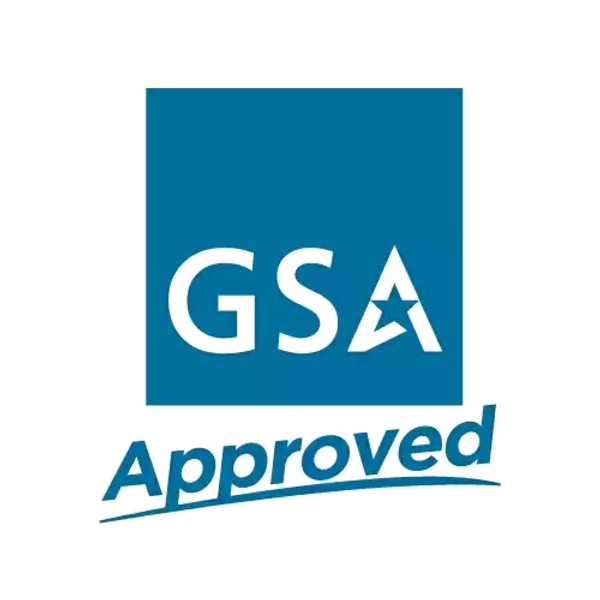
GSA padlocks are probably some of the best padlocks you can buy. Unfortunately, they are generally not sold to the public, but can be found in the second-hand market or you can find older versions floating around on the Web for sale.
If you don’t want to take my word as to what is a great lock or not, use the same padlocks that are used by US agencies like the FBI and CIA to secure their assets. Here in Canada, PSPC generally recommends all Canadian federal departments use the Abloy locks and padlocks – which we do carry.
How much should you spend on security?
When it comes to determining how much money you should spend on a lock or a security system, I ask my clients first whether or not they have insurance covering the assets like your personal property or your home.
If you do have insurance, I recommend spending 50% to 90% of your insurance deductible depending on your budget and comfort level. If you don’t have insurance (you really should), I recommend spending at least 10% of the replacement value of your personal or business property.
The longer I work as a locksmith in Vancouver, the more I shake my head in disbelief when I meet clients unwilling to spend even $100 to protect their multi-million dollar condos and homes. I frequently encounter and talk to people who would rather go to Home Depot and spend only $50 to protect the single largest asset group they own.
This is why I tell anyone who would listen that a high-security lock costing $500+ is still a fantastic value. Even including installation costs, it still represents less than 0.1% value of the median Vancouver home, not including all the personal property contained within that home.
Even for a storage locker, a $100 great-quality padlock is worth significantly less than the items contained within the locker. Especially if you have to call a locksmith in the event the padlock fails or you lose the keys/combo.
Conclusion
I did not spend a lot of time discussing my favourite padlocks or lock systems because it really depends on a particular client’s needs and budget. Generally, I recommend people layer security on top of each other like an onion. Make life difficult for thieves and intruders. As an example, if one lock will make a thief’s life difficult, why not have two locks?
I am happy to chat with my existing and potential clients about the different products that are out there. If you are curious as to whether a lock is good or not, please call or text me at 604-363-2760 or email me at alex@locksmithvancouver.com. I look forward to making your life easier.
